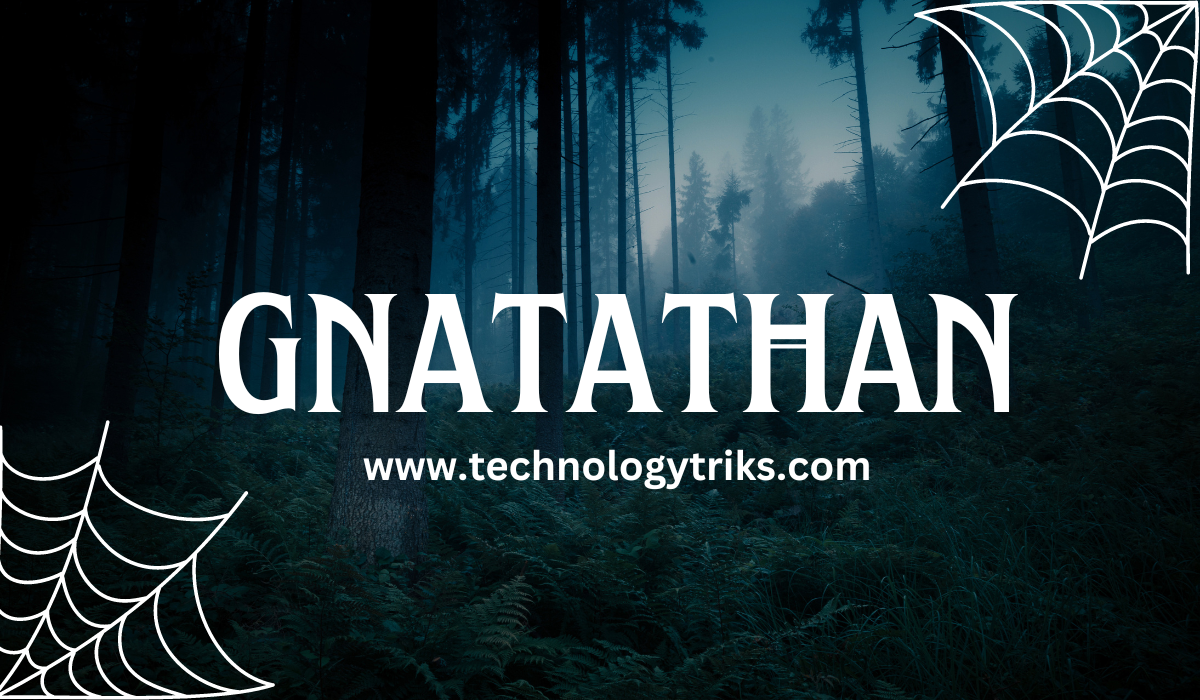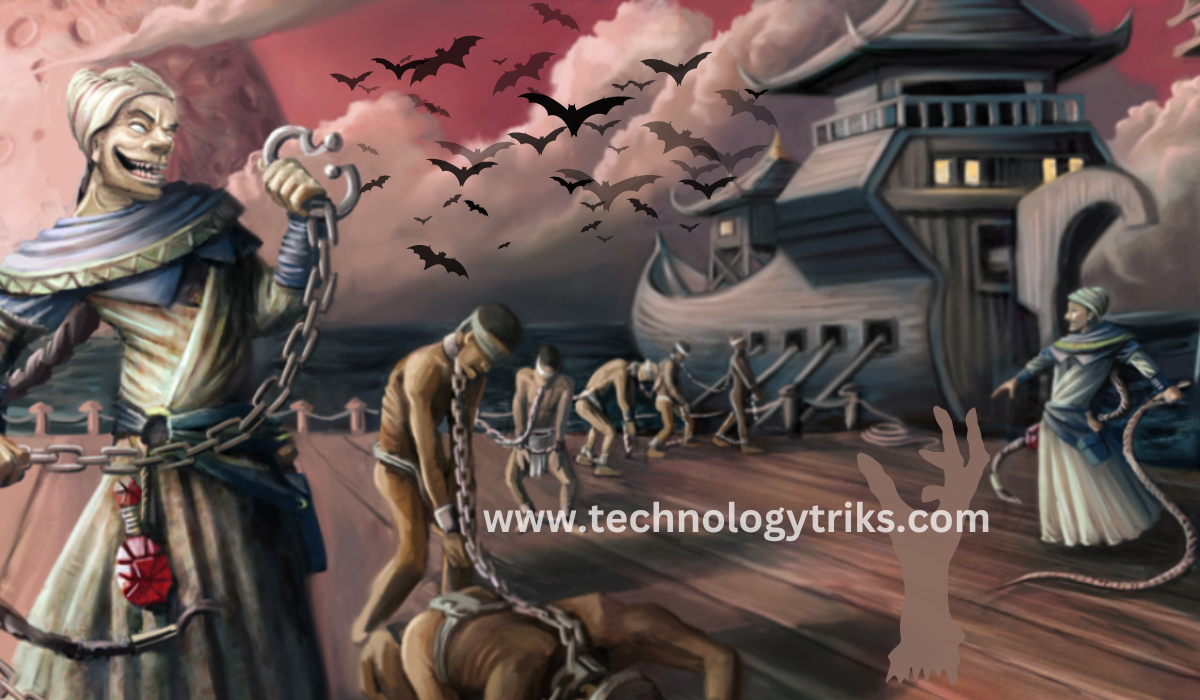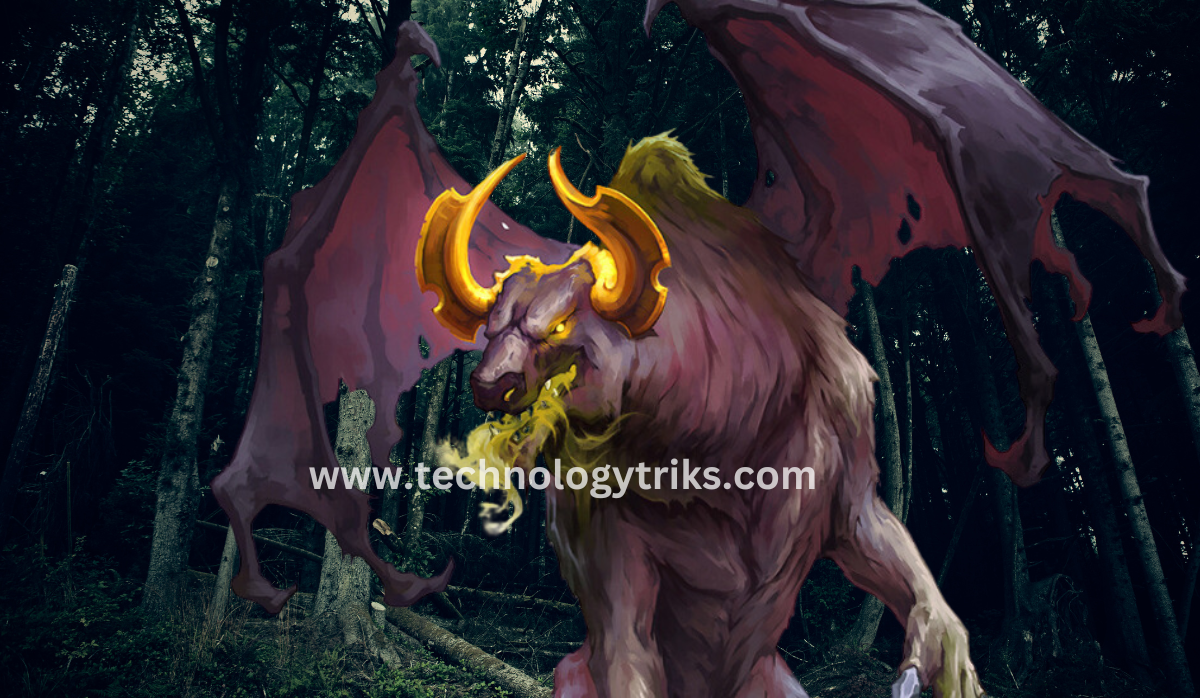Gnatathan, a term that has gained considerable traction in recent years, is influencing a variety of industries due to its multi-faceted applications and technological relevance. With the rise of digitization and new business models, Gnatathan is becoming essential for companies looking to optimize their operations and stay competitive. This article provides a comprehensive exploration of Gnatathan, detailing key statistics, trends, and its broader impact on industries. Alongside these insights, we will answer the most frequently asked questions related to Gnatathan offering readers a complete understanding of the term’s significance and future prospects.
What is Gnatathan?
Gnatathan is a term associated with advanced digital and technological processes aimed at optimizing and streamlining various operations within businesses. It has been applied across different industries, including technology, retail, and finance, offering innovations in areas such as automation, data management, and digital transformation.
Key Gnatathan Statistics
According to recent data from industry surveys, Gnatathan has witnessed a steady increase in relevance:
- 25% Year-on-Year Growth: Gnatathan’s application and awareness have increased by 25% annually across various sectors.
- 60% Adoption Rate in Tech: In 2023, nearly 60% of tech companies incorporated Gnatathan-driven technologies into their operations.
- $500 Million in Market Value: By the end of 2023, the market value for Gnatathan-related services reached $500 million, with projections estimating it will exceed $1 billion by 2026.
The Impact of Gnatathan on Different Industries
Technology Sector
Gnatathan has primarily impacted the technology sector, where its integration has significantly improved processes such as automation, cybersecurity, and data analytics. Companies leveraging Gnatathan have reported a 30% improvement in operational efficiency.
Gnatathan in Tech – Impact Summary
| Year | Adoption Rate (%) | Efficiency Improvement (%) | Market Value ($ Millions) |
|---|---|---|---|
| 2021 | 40 | 20 | 250 |
| 2022 | 50 | 25 | 400 |
| 2023 | 60 | 30 | 500 |
E-Commerce and Retail
In e-commerce, Gnatathan helps retailers manage large volumes of data, enhance customer experience, and streamline logistics. Studies indicate that businesses using Gnatathan solutions experience a 15% boost in customer retention due to better personalization strategies.
Finance
In the finance industry, Gnatathan-driven solutions have revolutionized fraud detection, risk management, and automation. As of 2023, financial institutions reported a 40% reduction in fraudulent activities attributed to Gnatathan.
Why is Gnatathan Important for Businesses?
Gnatathan is pivotal for organizations aiming to stay competitive and maintain operational efficiency. It offers several key benefits:
- Increased Automation: Gnatathan improves workflows by automating repetitive tasks, reducing the need for manual intervention.
- Better Data Management: With the help of Gnatathan, companies can handle vast amounts of data more efficiently, gaining better insights for decision-making.
- Cost Reduction: Businesses adopting Gnatathan solutions can save significant amounts on operational costs by automating tasks and improving efficiency.
The Future of Gnatathan
The future of Gnatathan looks promising, with multiple industries set to increase their adoption of the technology. Projections suggest that by 2030, Gnatathan will be a critical part of the global digital economy.
Gnatathan Market Growth Projections
| Year | Market Value ($ Billion) | Global Adoption Rate (%) |
|---|---|---|
| 2024 | 0.75 | 65 |
| 2026 | 1.0 | 75 |
| 2030 | 2.0 | 90 |
Origins and Evolution of Gnatathan
The term “Gnatathan” might be relatively new, but it encapsulates a series of technological advancements that have been developing for decades. Gnatathan represents the convergence of automation, data analytics, and digital transformation, stemming from the rapid advancements in machine learning, artificial intelligence, and big data in the late 2010s and early 2020s.
Key Milestones in Gnatathan Development:
- 2015-2017: The Data Boom: The exponential growth of data, largely due to social media, mobile devices, and cloud computing, pushed industries to seek efficient data management solutions. Early forms of Gnatathan focused on automating data collection and analytics.
- 2018-2020: The AI and Automation Surge: Artificial intelligence technologies such as machine learning, natural language processing, and robotics process automation (RPA) became mainstream. Gnatathan emerged as a comprehensive solution, combining these technologies to optimize business operations.
- 2021-Present: Comprehensive Digital Transformation: Gnatathan expanded its scope, evolving from individual technology components into an overarching business strategy focused on transforming entire organizations. This period also saw Gnatathan’s widespread adoption across industries beyond tech, including healthcare, education, and government.
Technical Components of Gnatathan
Gnatathan comprises several technical pillars, all working together to streamline operations, improve decision-making, and enhance the overall efficiency of business processes. These components include:
Automation
Automation is a central part of Gnatathan, helping businesses reduce manual work, increase productivity, and eliminate human errors. The types of automation commonly found in Gnatathan-driven solutions include:
- Robotic Process Automation (RPA): Automates repetitive tasks such as data entry, invoice processing, and customer support.
- Workflow Automation: Streamlines processes by routing tasks between people, systems, and departments automatically.
Statistical Impact of Automation in Gnatathan:
- 40% Reduction in Manual Tasks: Companies that have adopted Gnatathan solutions report up to a 40% reduction in manual, repetitive tasks.
- 30% Increase in Employee Productivity: Automation in Gnatathan not only reduces workload but also frees up employees to focus on more complex tasks, leading to a 30% boost in productivity.
Data Analytics and Machine Learning
Data is the backbone of any digital transformation strategy, and Gnatathan places a strong emphasis on data analytics and machine learning (ML) to extract valuable insights from large datasets. This enables businesses to make data-driven decisions more quickly and accurately.
- Predictive Analytics: Gnatathan uses historical data to predict future trends, enabling businesses to forecast demand, identify risks, and optimize resources.
- Machine Learning Algorithms: These algorithms automate the process of learning from data, allowing systems to improve performance without being explicitly programmed.
The Role of Data Analytics in Gnatathan
| Year | Percentage of Companies Using Data Analytics (%) | Average Revenue Growth from Analytics (%) |
|---|---|---|
| 2020 | 35 | 12 |
| 2022 | 50 | 18 |
| 2024 (Projected) | 65 | 25 |
Artificial Intelligence (AI) Integration
AI is central to Gnatathan’s success. It powers the automation and data analytics that define the strategy. AI-driven tools can understand, analyze, and even respond to complex problems. Gnatathan enhances business agility by embedding AI in:
- Customer Relationship Management (CRM): AI in CRM systems helps businesses understand customer behavior better, improving engagement and retention rates.
- Cybersecurity: AI in cybersecurity systems detects and responds to threats faster than traditional systems, minimizing the impact of potential breaches.
AI Adoption Statistics in Gnatathan-driven Businesses:
- 60% of Global Enterprises: By 2023, 60% of global enterprises had adopted AI to some extent, with Gnatathan-driven AI tools at the forefront.
- 25% Cost Reduction in IT: AI-driven automation within Gnatathan solutions has helped reduce IT costs by an average of 25%.
Case Studies: Real-world Applications of Gnatathan
Gnatathan has found practical applications in many industries, leading to impressive business outcomes. Below are a few case studies that highlight its impact.
Gnatathan in Healthcare
Case Study: Improved Patient Care Through Gnatathan Solutions
One notable example comes from a large hospital system that implemented Gnatathan-driven data analytics and AI to streamline patient care. Before the adoption, the hospital faced challenges in managing patient records, resulting in longer wait times and reduced efficiency.
After integrating Gnatathan into their workflow:
- 15% Reduction in Wait Times: Automation of patient records and appointment scheduling reduced patient wait times by 15%.
- 30% Increase in Staff Efficiency: Nurses and doctors could spend more time with patients due to automated administrative tasks, improving overall patient satisfaction.
Gnatathan in E-commerce
Case Study: Enhancing Customer Experience with Gnatathan
An e-commerce platform adopted Gnatathan to improve customer experience by leveraging machine learning and predictive analytics. The company struggled with low customer retention and high cart abandonment rates.
Post-implementation results:
- 20% Increase in Retention: Personalized recommendations and automated follow-up emails, driven by Gnatathan, increased customer retention by 20%.
- 10% Decrease in Cart Abandonment: Automated reminders and customized discounts reduced cart abandonment rates by 10%, boosting overall revenue.
Gnatathan in Manufacturing
Case Study: Streamlining Production Processes
A major manufacturing company used Gnatathan to automate production line monitoring and predictive maintenance. Before Gnatathan, the company dealt with frequent machine breakdowns that led to production delays.
Post-Gnatathan adoption:
- 50% Reduction in Downtime: Predictive maintenance, powered by Gnatathan’s AI tools, helped anticipate machine failures, reducing downtime by 50%.
- 10% Increase in Production: With fewer breakdowns and optimized workflows, production output increased by 10%.
Broader Implications of Gnatathan Adoption
Economic Impact
The economic benefits of Gnatathan cannot be overstated. Businesses leveraging Gnatathan technologies report significant cost savings, enhanced productivity, and increased revenue. According to a report from MarketWatch, the Gnatathan market is expected to grow at a CAGR of 15% from 2023 to 2030, reaching a global value of $2 billion by the end of the decade.
Also read more : prince narula digital paypal
Social Impact
Gnatathan’s influence extends beyond the economic realm, shaping social dynamics through its role in digital transformation. As businesses automate processes and shift towards digital platforms, the nature of work is evolving. Gnatathan is creating new job opportunities in fields like AI, data science, and automation, while also requiring the workforce to adapt and develop new skills.
Environmental Impact
Sustainability has become a key concern for businesses, and Gnatathan can contribute positively by optimizing resource use. Companies that adopt Gnatathan report better energy management and lower waste production through automation, predictive analytics, and real-time data monitoring.
Gnatathan’s Environmental Impact in Manufacturing
| Metric | Before Gnatathan | After Gnatathan |
|---|---|---|
| Energy Consumption | 100,000 | 85,000 |
| Waste Production | 1,000 | 800 |
| Emissions Reduction | – | 20% |
Common Challenges and Solutions in Implementing Gnatathan
While Gnatathan offers numerous benefits, its implementation can pose several challenges:
Integration with Existing Systems
One of the primary hurdles businesses face is integrating Gnatathan with their current IT infrastructure. Many companies rely on legacy systems that are incompatible with modern Gnatathan tools.
- Solution: A phased integration approach, starting with non-critical systems, can minimize disruption. Additionally, using middleware solutions can help bridge the gap between old and new technologies.
Data Privacy and Security Concerns
As Gnatathan relies heavily on data, ensuring the security and privacy of this data is critical. Mismanagement of sensitive data could lead to regulatory fines or loss of customer trust.
- Solution: Adopting robust cybersecurity measures and data encryption technologies can help safeguard sensitive data. Moreover, businesses should remain compliant with data protection regulations like GDPR and CCPA.
Employee Resistance
Change is often met with resistance, and employees may fear that the introduction of Gnatathan-driven automation will lead to job displacement.
- Solution: Offering retraining programs and clear communication about how Gnatathan will improve—not replace—human roles is crucial. Businesses that invest in reskilling their workforce typically experience smoother transitions and higher job satisfaction.
FAQ
What does Gnatathan stand for?
Gnatathan refers to a set of advanced technological practices aimed at improving business processes through automation, data optimization, and digital transformation.
How does Gnatathan impact businesses?
Gnatathan helps businesses streamline operations, reduce costs, and improve customer satisfaction by leveraging automation and data management tools.
Is Gnatathan only applicable to large businesses?
No, Gnatathan can be adopted by businesses of all sizes. Small to medium-sized enterprises (SMEs) have reported significant operational improvements and cost savings through its implementation.
What industries benefit the most from Gnatathan?
Industries such as technology, e-commerce, and finance have seen the most significant benefits from Gnatathan. However, it can also be applied to healthcare, education, and manufacturing.
What are the future trends for Gnatathan?
The future of Gnatathan involves deeper integration into artificial intelligence (AI) systems, predictive analytics, and enhanced automation tools. Projections suggest rapid growth in adoption, particularly in sectors like tech and retail.
Conclusion
Gnatathan is more than just a technological trend; it represents a significant shift in how businesses operate and thrive in a digital-first world. From enhancing operational efficiency to reducing costs and improving customer satisfaction, the applications of Gnatathan are vast and growing. As more industries adopt this technology, we can expect to see even more innovative applications and benefits. For businesses, adopting Gnatathan solutions will not only provide a competitive edge but will also ensure sustainability in a rapidly evolving market.
Also read more : webui forge dump cache



